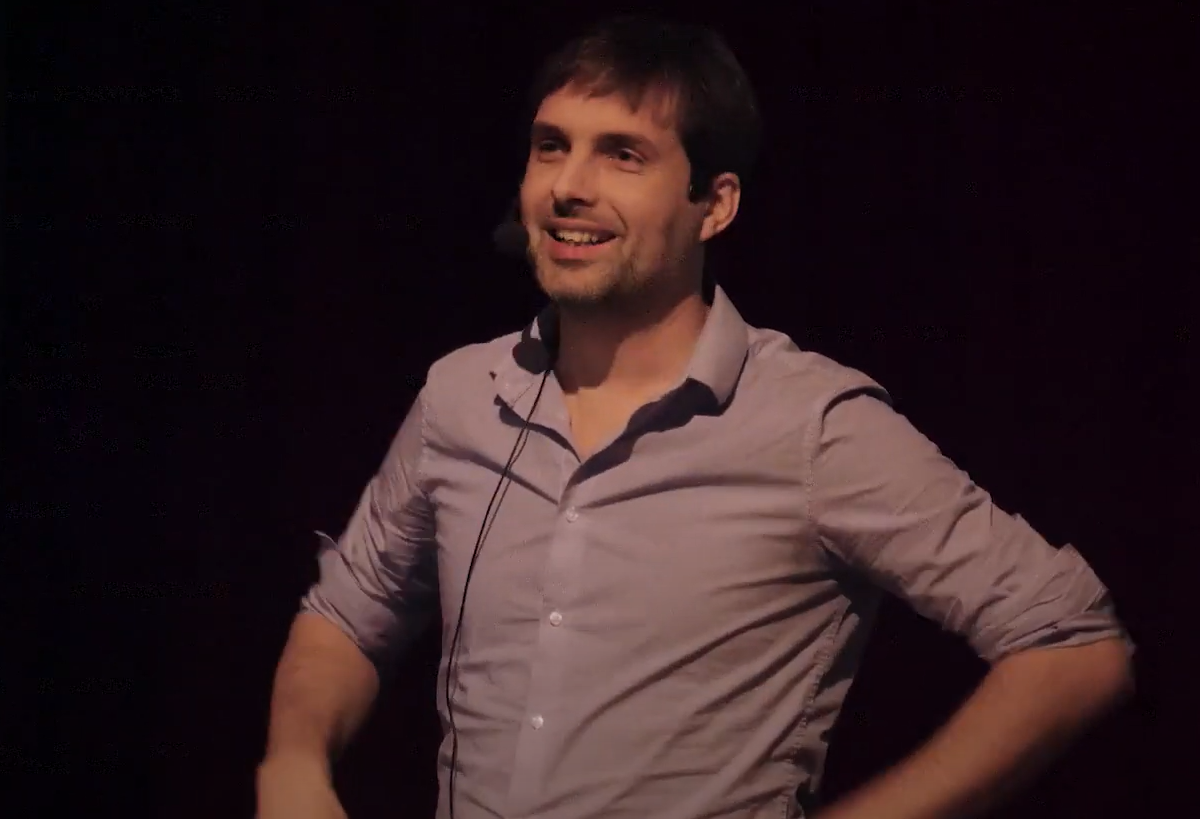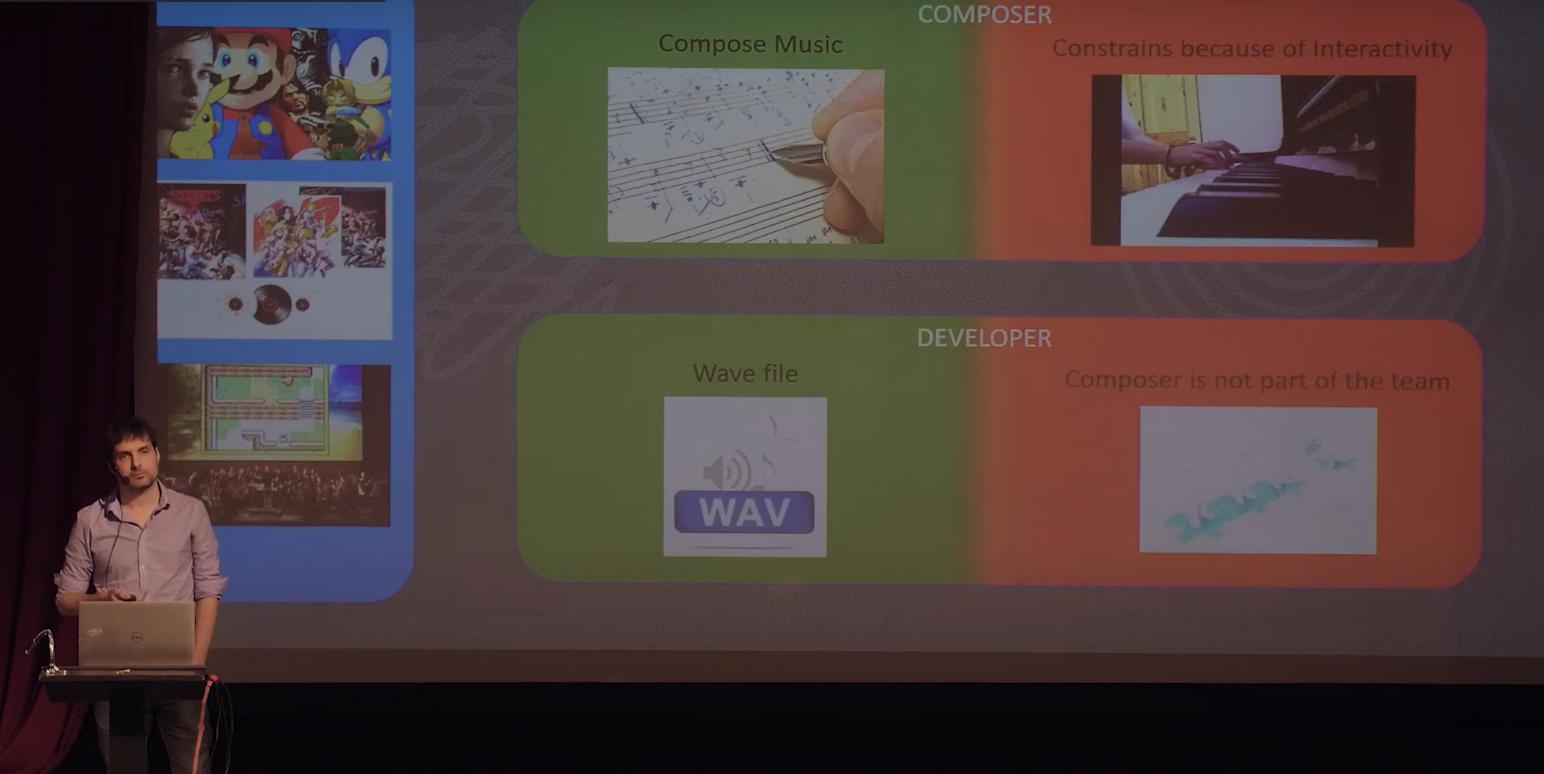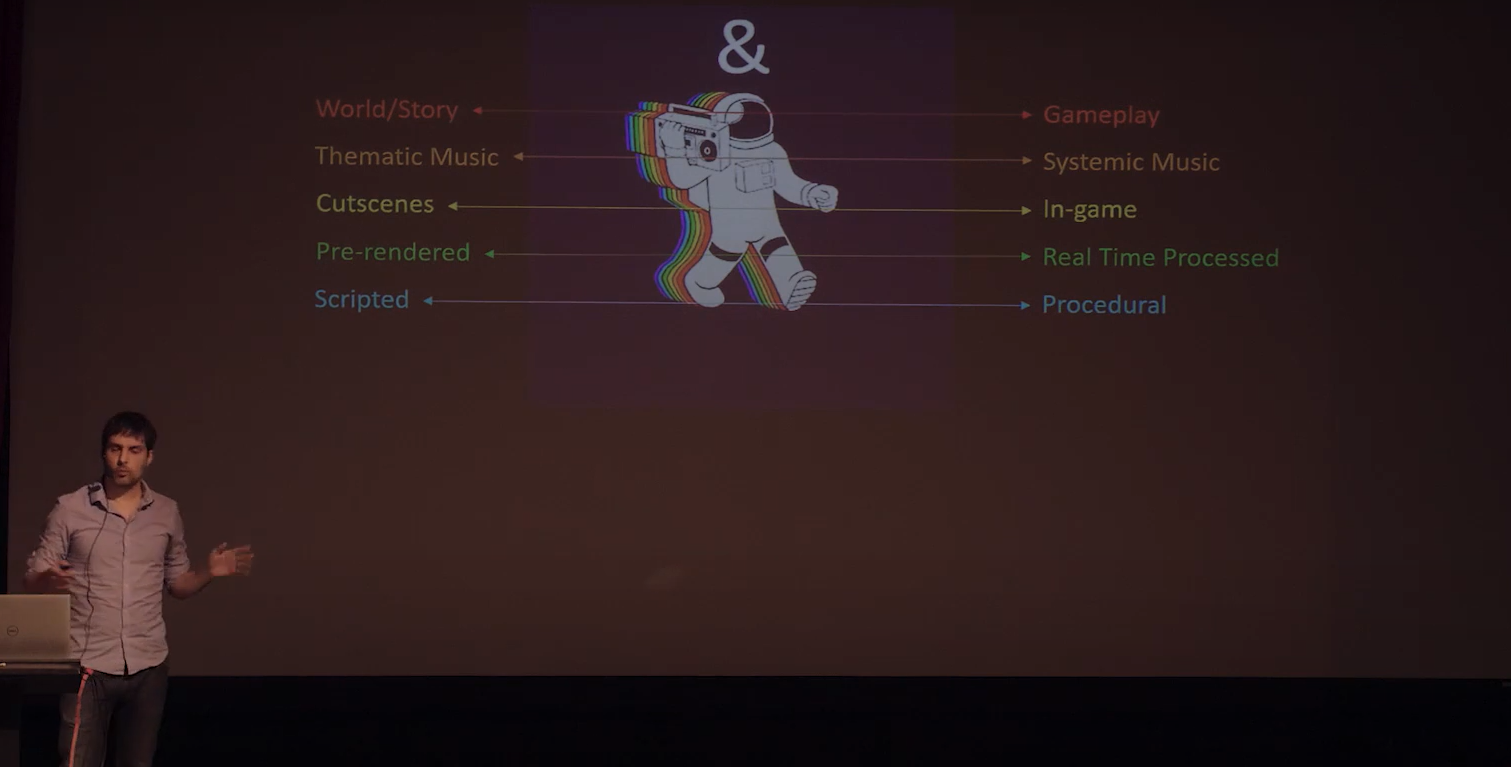What is video game music? What is interactive music? The answers to these questions are not as straightforward as they seem. Olivier Derivière demonstrates how the general view of music for games remains limited and how broad the opportunities for artistic expression truly are. Music for games should be more than just music.In part one of this two part series we go over the talk given by Olivier at our last Wwise Interactive Music Symposium.
In this first part we explore the misunderstanding of what music is for games, and how Olivier builds his relationships with developers to bridge that gap. In part two he invites us to join him on a journey in his spaceship called WW15E ( get it? Wwise 15E). Stay tuned!
Speaking to an audience of composers, Olivier begins with a bold statement “Nobody knows how to make a game, so how would you know how to make music for games?”
So, what is music for games? Olivier points out that for a composer, it is the act of writing music, and for the developer, it’s a .WAV file. Composers can be a .WAV file for developers rather than a team member, and this boils down to how the relationship between the composer and the developer is typically established.
The developers hire a composer as a service provider for the client who is creating the game, which is how the nature of the relationship causes this misunderstanding and limits the music’s potential. Though the transaction can be efficient, Olivier points out, that it may cause the composer to not become fully immersed with the rest of the team, and therefore missing out on the potential of their creativity and the game.
When given constraints you might face when creating interactive music for games specifically, Olivier emphasizes that these constraints foster creativity. He notes that limitations are actually a creative blessing, which push you to try new things in new ways.

How can a composer resolve the relationship between themselves and the developer?
- The relationship between a composer and a developer.
- General approach to a project.
- Why bother?
The Relationship between the Composer and the Developer
Both the composer and the developer are out there wanting to do something with the game, and can “envision together the game through a musical spectrum.” The music is not one component of the game, but an integral part of the entire experience. The composer and developer need to share a vision. Olivier illustrates the importance of selling his vision as a composer, and how the music can add to the experience. It requires a big effort on both sides, and the ability to communicate and align on a vision.
A key part of uniting as a team for the gameplay is understanding that audio for the game is not one thing. It all moves and lives together rather than many separate components such as sound effects, music and voice overs. These are not independent layers, they are all a part of the audio journey. Olivier shares how exciting it is for the developer once they understand how much can be done when you start thinking about how you can use the music to add to the gameplay adventure.

The General Approach
Olivier outlines his approach to working as a team on the music of the game by talking about the following areas:
- What is the World/Story?
- Is there thematic music?
- Are there cutscenes?
- Will it be pre-rendered?
- Is the game scripted?
The composer, as the service provider, will often focus on the first three bullets, Oliver explains. If you want to work with the developer and score the game for what it really is, you have to get to the core of it. The game play is the core of the game. The game play should determine the music. How is this done with the developer?
In expanding on the world and the story, include questions about the gameplay. Knowing details about things like the pacing and constraints will drastically change what is musically written. Another way to get to the core of the experience is to write the thematic music with the systemic music in mind.
Oliver explains how everything in a video game is systemic, with mechanics repeated through gameplay loops. By understanding the systemic aspects of the game, the composer has the power to then apply different thematic music throughout the course of the game.
A final example of how Olivier makes music for games that is more than just music is to dive deeper into cutscenes and where they fall with the in-game experience. Cutscenes and in-game play should never be separated from one another, he explains. The flow can be powerful for the user. One cutscene might start the music and it can continue to flow into the in-game scene or vice versa. Knowing the story will change how the composer will write the music for this.
Why Bother?
Olivier is striving for meaningful experiences. He explains the beauty and freedom of scoring for games in being the expert. The creative freedom to put yourself into the music by extending the artistic vision. Composers have the opportunity to improve their craft using technology - while technology and creativity go hand in hand. He encourages us to embrace technology, to grow alongside it to be able to continue creating meaningful experiences. This ultimately improves the players experience, which is what matters most.
A key component to building your relationship as a composer with the developer, and to have the developers understand you, is to take the time to understand them. The relationship is created by building trust. He encourages composers to work very closely with developers to create music for games that is more than just music.



Comments